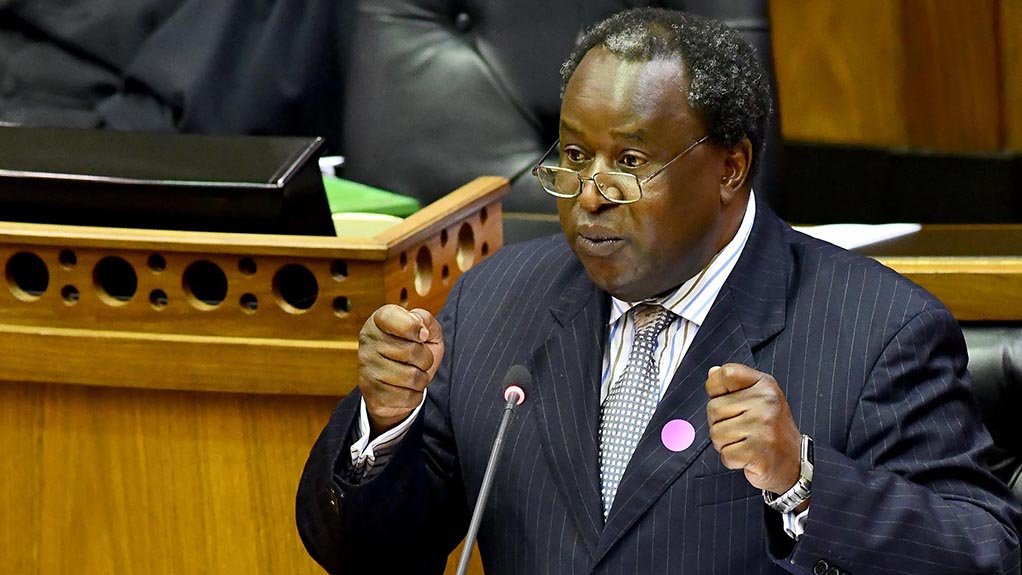Condolences have streamed in from the business, academic and government spheres following the death of former Finance Minister Tito Mboweni at the weekend.
Finance Minister Enoch Godongwana described Mboweni as a leader having served the country with “immeasurable distinction” during his term as Finance Minister between 2018 and 2021, particularly as he guided South Africa’s economy through the worst of the Covid-19 pandemic.
Mboweni was also governor of the South African Reserve Bank (SARB) between 1999 and 2009. He died on October 12 following a short illness.
Other government officials, including National Assembly Speaker Thoko Didiza and National Council of Provinces chairperson Refilwe Mtshweni-Tsipane, commented on Mboweni’s dedication to the nation, with his activism having “spanned the struggle for freedom and the consolidation of democracy in South Africa”.
He undoubtably left his mark on the country’s democratic and economic institutions, Didiza and Mtshweni-Tsipane stated.
The Small Business Institute lauded Mboweni for having served as South Africa’s first post-Apartheid Labour Minister, having formulated a progressive labour relations regime and steering the economy towards a higher growth trajectory.
South African Chamber of Commerce and Industry (Sacci) said Mboweni operated with integrity and was transparent in his dealings with the private sector. The chamber also lauded his achievement of growing the SARB into a highly regarded central bank globally.
Sacci added that his efforts in establishing the National Economic Development and Labour Council were “pioneering” and continued to bring various stakeholders together to debate policy and regulations that affect South Africa.
Mboweni’s colleagues at the SARB agree, stating that he built the SARB into a professional, formidable and purposeful organisation that met its inflation reduction targets and streamlined internal governance processes.
Equally, the South African Revenue Service paid tribute to Mboweni for stabilising the macroeconomic landscape during his time as governor of the SARB and then as Finance Minister, as well as for ensuring a decade of stability in leadership at the SARB.
From the academic fraternity, North West University Business School economist Professor Raymond Parsons said Mboweni’s deep economic insights greatly shaped South Africa’s post-Apartheid policies and structures.
He also praised Mboweni for having forcefully defended the SARB’s autonomy and leading with integrity.
The Bureau for Economic Research said nearly two decades after Mboweni and the agency worked on an inflation targeting system, it still proved effective in keeping inflation within target range.
At the time of his passing, Mboweni was the chairperson of the African Centre for Economic Transformation, which is a global agency driving sustainable economic efforts through increased productivity, upgraded technology and improved human wellbeing in the private and public sectors. He was also a director of various companies.
His earlier years were spent studying economics and political science in Lesotho and England, before Stellenbosch University awarded him with an honorary doctorate in 2010 and appointed him Professor Extraordinary of Economics from 2002 to 2005.
As a dedicated public official over many years, stakeholders agree that Mboweni left a tangible economic legacy in South Africa.
EMAIL THIS ARTICLE SAVE THIS ARTICLE ARTICLE ENQUIRY
To subscribe email subscriptions@creamermedia.co.za or click here
To advertise email advertising@creamermedia.co.za or click here











